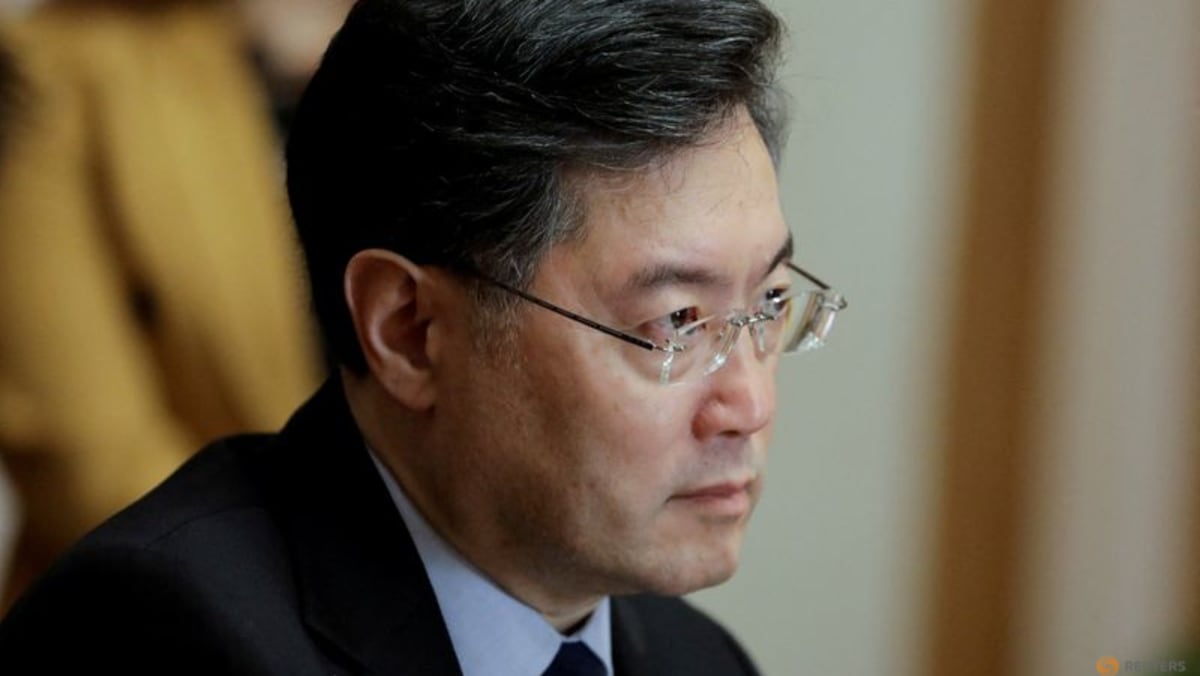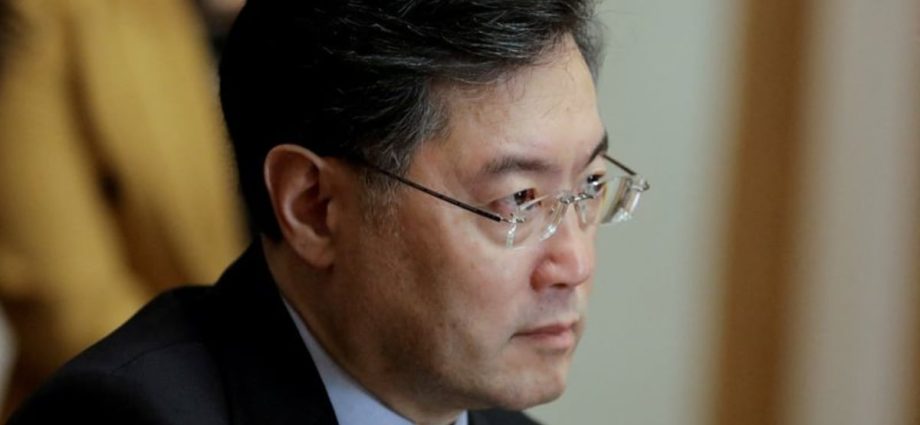
Qin was twice foreign ministry spokesman, between 2006 and 2014, and chief protocol officer between 2014 and 2018, overseeing many of Xi’s interactions with foreign leaders.
As ministry spokesman, he stood out for being one of the first diplomats to speak aggressively in defence of China’s increasingly assertive foreign policy, a style that became known as “wolf warrior” diplomacy.
But he also displayed willingness to work with the United States, declaring upon his arrival in Washington as ambassador in July 2021, after a period of unusual public vitriol between US and Chinese officials, that relations held “great opportunities and potential”.
Relations between the two big powers did not markedly improve during his time as ambassador, or afterwards, however. The two sides have been often at odds over issues including trade, technology, and the self-ruled, democratic island of Taiwan, which Beijing claims and Washington supports.
Qin, who analysts said was likely to have been appointed foreign minister to help stabilise relations with the US, held a five-and-a-half hour meeting and a dinner with US Secretary of State Antony Blinken in June in talks that both sides called candid and constructive.
A few days later, on Jun 25, he held talks with officials from Sri Lanka, Russia and Vietnam in Beijing but then began an unexplained public absence.
His ministry said on Jul 11 he was unable to attend a meeting in Indonesia for unspecified “health reasons”. It declined any further comment on his status, creating an information vacuum in which rumours swirled.

